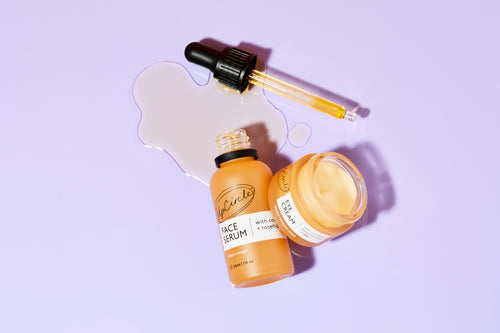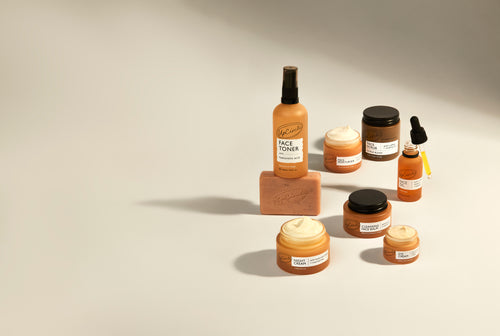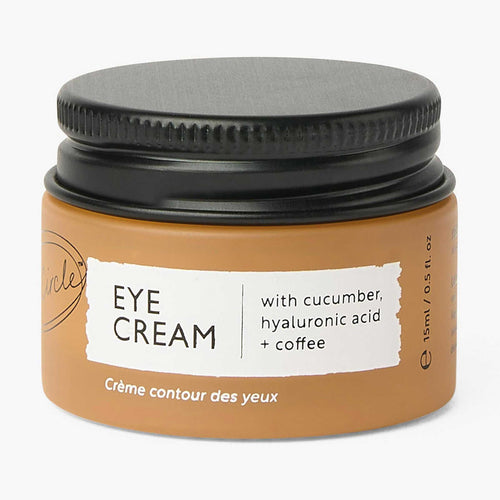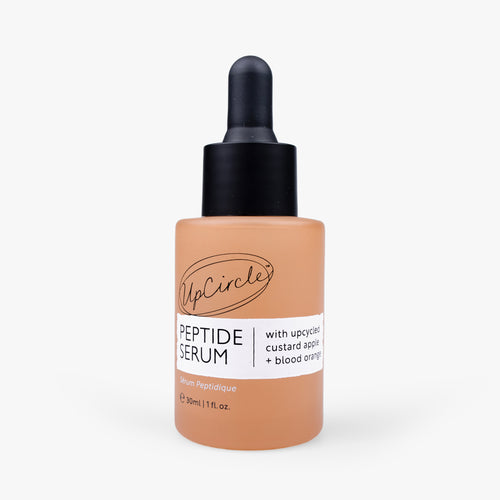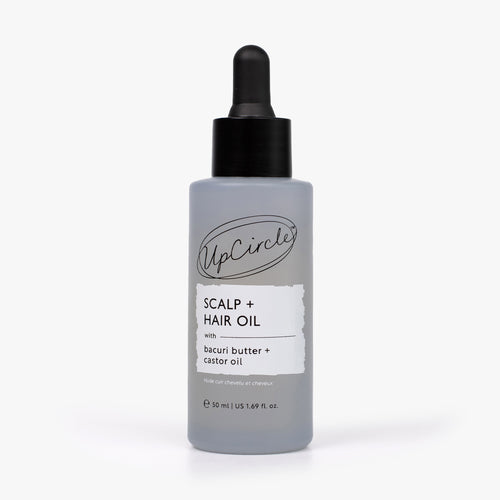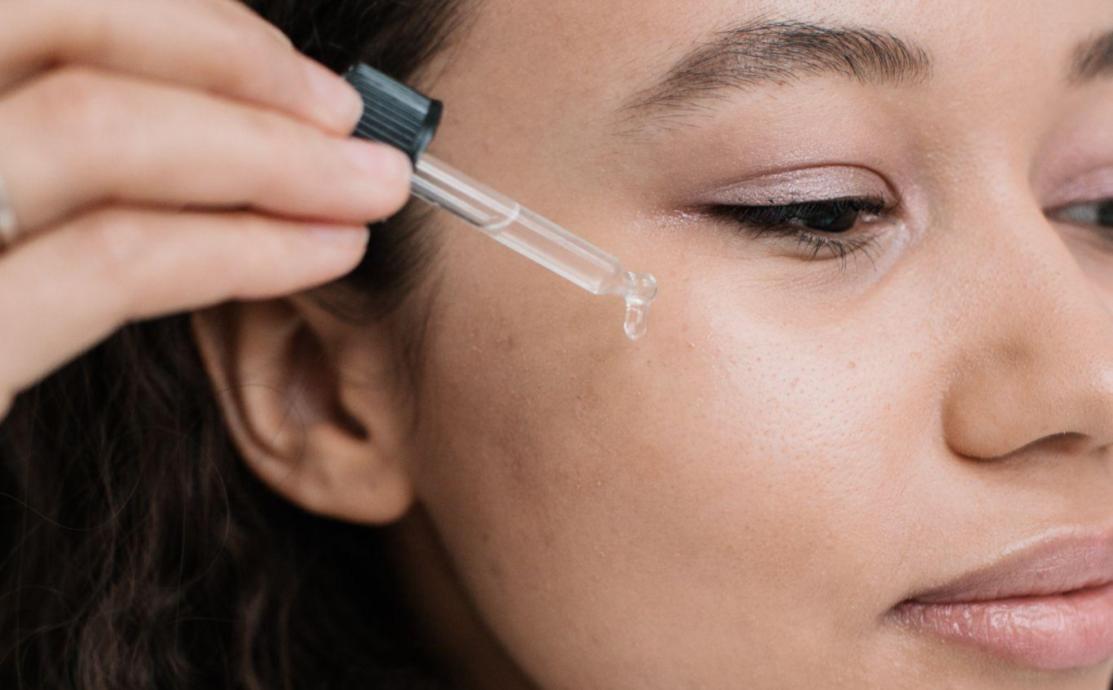Skincare ingredients seem to become increasingly complex to understand – and also more difficult to say! We’ve covered the likes of niacinamide and hyaluronic acid, and now it’s tretinoin’s turn.
Find out exactly what tretinoin is, how to use it for your skin, benefits, side effects and some of our most frequently asked questions about tretinoin.
What is tretinoin?
Tretinoin is prescription-strength topical retinoid that is usually used to treat acne. It typically comes as a topical cream or gel to use on the affected areas of skin. Tretinoin is sometimes known as all-trans retinoic acid (ATRA), and a popular brand name of tretinoin is Retin-A.
As a retinoid – a vitamin A derived compound – tretinoin is used as it helps to accelerate new (and healthy) skin cell growth, as well as repair sun-damaged cells. Tretinoin is a synthetic form of vitamin A.
How to use tretinoin
As tretinoin is a prescribed medication, first and foremost you should always follow the usage advice that comes with the product. Typical use for tretinoin is to apply the cream or gel before you go to bed, applying just enough to thinly cover the impacted areas of skin.
Some people find that, as tretinoin contains strong active ingredients, it takes their skin some time to get used to using the product – which is why it is absolutely essential to only use as prescribed.
Benefits of tretinoin
1. Accelerates new skin cell growth
Tretinoin has been found to be the most bioactive form among retinoids applied topically to the skin, helping to increase the epidermal cellular turnover. This means that the product helps to accelerate new skin cell growth to renew the skin.
2. Reduces inflammation
Tretinoin is specifically used for treatment of acne vulgaris – a type of acne which contains both inflammatory and anti-inflammatory lesions.
A review of the anti-inflammatory properties of tretinoin found that it contains five important properties which can be considered to be anti-inflammatory in nature. As such, tretinoin could help to reduce the inflammation that can be associated with acne vulgaris.
3. Prevents follicular plugging
Follicular plugging is sometimes known as skin, keratin or sebum plugging and refers to when dead skin cells, sebum or keratin blocks a pore. This often appears as a white or skin-toned bump on the skin and can later develop into whiteheads or blackheads.
Tretinoin has been found to reduce this plugging of the pores as it increases cell regeneration and also helps to exfoliate the skin.
4. Exfoliates the skin
As well as reducing inflammation and increasing cell regeneration, tretinoin also has exfoliating properties. While tretinoin in itself is not an exfoliator, as the product accelerates new skin cell growth, it has exfoliating properties.
5. Repair sun-damaged cells
Sun damage is being increasingly studied and individuals are becoming more aware of the damage that the sun’s rays can cause their skin. Topical tretinoin has been found to partly reverse the structural damages of excessive sunlight exposure.
As well as this, research has shown that the product could be useful in decelerating the photoaging process – when the sun prematurely ages the skin.
6. Reduce fine lines and wrinkles
Vitamin A is commonly used in ‘anti-aging’ treatments, and it has been found that tretinoin is able to reduce the prevalence of fine lines and wrinkles on the skin.
A study found that after using topical tretinoin for 12 weeks, participants saw significant improvements in fine wrinkling around the eyes, as well as crease lines around the mouth and cheeks.
7. Reduce the appearance of dark spots and hyperpigmentation
Tretinoin has been found to be especially useful in treating hyperpigmentation of photoaged skin, helping to fade dark patches.
8. Improve skin texture and tone
Skin tone, texture and tactile roughness can also see an improvement when using tretinoin. This is largely because tretinoin has the ability to increase collagen production in the skin. One study found that treatment of photodamaged skin with tretinoin produced an 80% increase in collagen formation.
Tretinoin side effects
As tretinoin is a prescription medication, you’ll be able to find a full list of possible side effects in the box of the product. However, some of the common side effects people may experience when using tretinoin are redness, dryness, itchiness and peeling of the skin.
Why is tretinoin not available in the UK?
Tretinoin is a very strong retinoid and as such, is only available in the UK on prescription from a GP or a dermatologist. This is to ensure that only people who need to use the product have access to it.
Tretinoin FAQs
Is tretinoin a retinoid?
Yes, tretinoin is a retinoid. Retinoids are compounds that are derived from vitamin A, and as tretinoin is a synthetic form of vitamin A, it is a retinoid.
What’s the difference between tretinoin vs retinol?
While both tretinoin and retinol are considered to be retinoids, they have distinct differences. Whereas tretinoin is a synthetic form of vitamin A, retinol is a form of vitamin A that can be both found naturally or produced synthetically.
Tretinoin is also a much stronger retinoid than retinol, hence why retinol is available over the counter and tretinoin is only available with a prescription.
What is a tretinoin purge?
A tretinoin purge refers to the period of time after starting the treatment where some users find their skin gets worse before it gets better. This can be characterised by dry, flaky or peeling skin, as well as red and itchy skin.
Not everyone who uses tretinoin will experience this, but a fair amount will.
Tretinoin skin care alternatives
Tretinoin isn’t everyone’s cup of tea, nor is it available to everyone to use. That’s why we wanted to highlight some natural alternatives you can use in your skincare routine.
- Night Cream with Hyaluronic Acid & Niacinamide – includes blueberry extract, a natural source of pro-retinol (retinol proportionate) that is rich in antioxidants.
- Organic Face Oil with Coffee Extract & Floral Blend Coffee Face Scrub – includes rosehip oil, a natural (and sustainable) alternative to retinoids.
Shop our full range of sustainable skincare at UpCircle.

